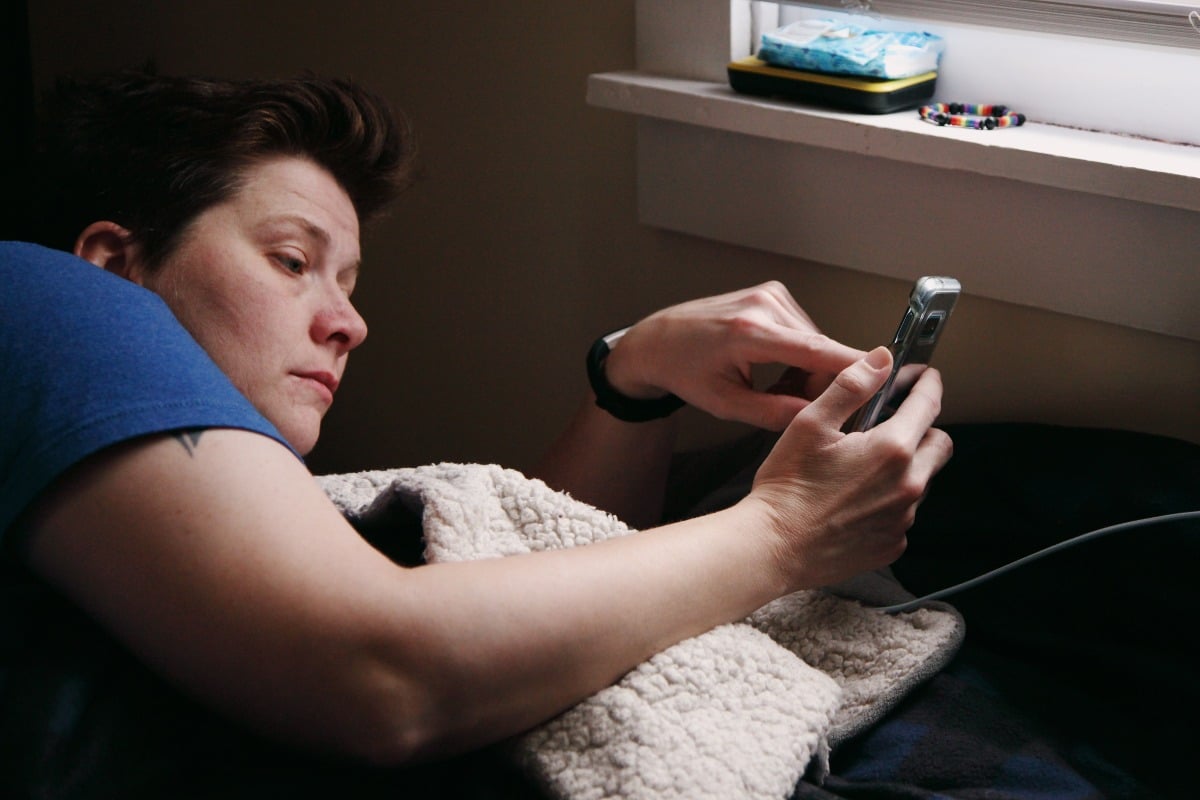Can Social Media Worsen My Depressive Symptoms?
Humans need social interaction and connection. Social media makes it easier to connect with people around the world. For some people, it eases the anxieties that come with in-person socializing. However, social media can be harmful depending on the quality of relationships that are formed on the platform. Fulfilling a person’s social needs requires a balance of quantity and quality. Social media is not all good or all bad; however, too much can worsen depressive symptoms. It can make you feel lonely, empty, and lethargic. The key to a healthy relationship with social media is balance.
Social Media’s Impact on Depression
A 2020 study showed 3.34 billion people were on social media in 2019. Despite its rising popularity, there is still so much we don’t know about its impact. There have been studies that suggest women’s mental health is more negatively impacted by social media than men’s. Studies have been conducted on the impact of social media on teens as well as narcissistic characteristics. There’s still a lot we don’t know. However, many studies have reported addictive qualities from social media usage. This could be caused by people’s tendencies to use social media to gain a high quantity of connections instead of high quality.
Displacement Theory
All the time people spend on social media must come from somewhere. So what are people spending less time on? The social displacement theory believes the time people spend interacting behind a screen replaces the time people spend having meaningful face-to-face interactions. While the person may be going through the motions of socializing, the quality of the interaction can feel socially unsatisfying. This leads to fewer quality interactions, which can heighten depressive feelings of emptiness and loneliness.
More time staring at a screen also means more time being sedentary. Some people believe social media has taken up time that people used to use for physical activity. Exercise spikes endorphins that cause feel-good emotions that can improve a person’s mood and mitigate depressive symptoms. A person’s physical and mental health are highly linked. When one fails, the other usually falls shortly behind. A lack of exercise can lead to physical and emotional exhaustion and a lack of motivation.
Addictiveness of Social Media
There is some controversy over the future implementation of social media disorder in the DSM, a handbook used for psychological diagnosis. This diagnosis would describe the symptoms of social media addiction. There are undeniably addictive qualities of social media usage that can lead to an endless pit of mindless scrolling. Using social media to modify mood is a warning sign that could indicate social media addiction. This could include impulsive searching for online praise or using social media as a form of escapism. Symptoms of social media addiction include:
- Prominent usage
- Mood modification
- Tolerance
- Relapse
What Is Addictive About Social Media?
A person may be addicted to social media if they lack control over their social media usage. Addiction is also characterized by use that interferes with personal and work relationships. Some researchers argue that social media addiction isn’t an addiction to social media platforms but an addiction to connecting with people. Other researchers believe that social media addiction may be a symptom of nomophobia. This term used by researchers refers to a fear of being away from one’s cell phone. It is a fear believed to be rooted in a fear of not being able to engage in social connection.
One researcher observes five different types of computer addiction. Among them includes cyber relationship addiction, described as an addiction to online relationships. A 2010 study that linked Facebook activity with narcissistic characteristics hypothesizes that social platforms enable people to create positive self-imagery. The addictiveness of social media could be caused by a fear of missing out or a need to be special. There are many ways social media gives people a feel-good sensation that can make it difficult to tear their eyes away from their screens.
Unplug and Turn Off Your Screens
A permanent ban on social media is impossible for many people. Social media has been so integrated into people’s everyday lives that cutting it off can be a significant handicap. However, if social media is negatively impacting somebody’s depressive symptoms, they must limit their screen time. Unplugging can help mitigate the adverse effects of social media.
Planning Non-Screen Activities
Scheduling daily, weekly, or monthly times to unplug can mitigate the adverse effects of social media on a person’s depressive symptoms and overall mental health. It can be challenging for somebody to schedule a time not to do something. Instead, they can schedule time for non-screen-related activities.
These could be activities that the person realizes they used to spend more time on, but that time has since been spent on social media. This could include spending face-to-face time with friends and family, going to the gym, participating in outdoor recreational activities, journaling, or meditating. The non-screen activity should be healthy and rejuvenating for your mind and body.
Social media is impossible to avoid, but limiting social media could help you mitigate depressive and substance use symptoms. Restoration Recovery Center understands that technology is an essential part of your daily life. Our treatment facility allows three hours of phone time a day to connect and stay connected with family, friends, and careers. We know your depressive symptoms are as complex as you are. Our mental health professionals can provide you with a treatment plan that is unique to your recovery needs. Let us help you find the right tools for a successful recovery. If you or someone you know is struggling with substance use disorder, please call Restoration Recovery Center at (888) 290-0925 today.






